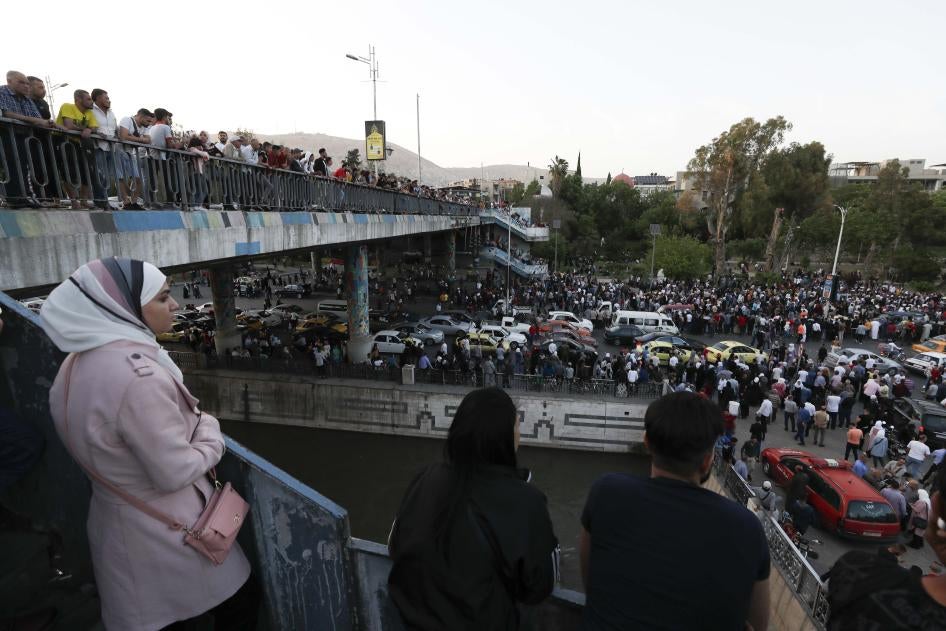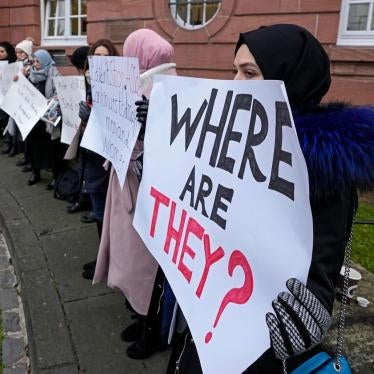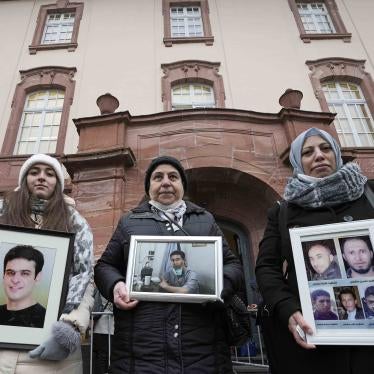On April 30, Syrian President Bashar al-Assad granted a general amnesty for “Syrian citizens detained on ‘terrorism-related’ crimes,’” except for crimes that resulted in death. The Syrian Network for Human Rights (SNHR) has documented the release of 193 detainees since May 1, including seven who were children at the time of their arrest. Those released have spent from two to eight years in detention.
While the release of detainees from the Syrian government’s horrific dungeons is good news, no information has been provided about the many others who remain locked away. Images released over the last few days show masses of people gathered under al-Ra’is Bridge in Damascus, anxiously awaiting the potential arrival of their loved ones. Many of these families had seen names of their relatives on lists posted on social media, while others showed up hoping to see a recognizable face.
The head of Syria’s Counterterrorism Court, Zahera al-Bashmani, later confirmed that these lists were fake and described the families gathering as “strange.” She said the amnesties will be granted on a case-by-case basis, the government will not provide any comprehensive lists nor designate specific release locations, and the releases will happen in “waves.”
The chaos around these limited releases has been heartbreaking for the many families who have unsuccessfully searched for information on detained relatives for years. Tens of thousands remain detained or forcibly disappeared by the government.
The process of Syrian authorities granting amnesty to some detainees also implies that there were criminal charges and fair trials that resulted in convictions. In reality, little is known about the detainees after their arrest and where the process is clear, it is riddled with due process concerns. Syria’s detention system is a “torture archipelago” where authorities have killed or allowed detainees to die under torture while many others continue to suffer in abhorrent prison conditions.
Families interviewed pleaded to just be given an answer whether to keep hoping for their loved ones’ return. Many who have not been able to locate their relatives have taken to social media to post pictures and information, in hopes they could be identified and reconnected. Even as Syrian authorities produce a modicum of good news, they continue to punish those living under their despotic rule.









